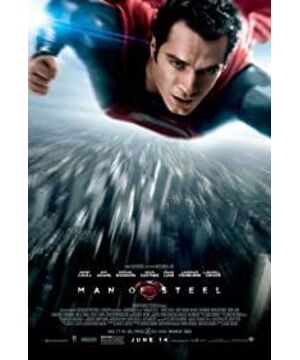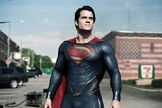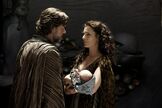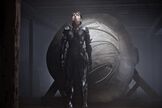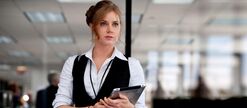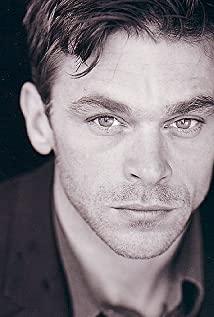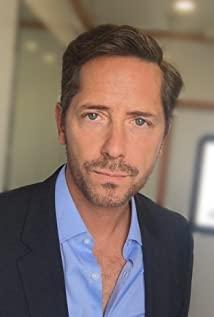http://mangatalk.net/2013/man-of-steel/
so it involves a lot of Superman original comics related content, please understand.
This document is for everyone who has longed for and looked up to heroes.
======
I have never liked the role of Superman.
—— Tracing back to the source, the reason for this concept is probably because in my memory, there are already a handful of excellent manga with Superman as the protagonist; even if there are occasional bead masterpieces, they unfortunately failed to become Part of my childhood memory. I think this may be the essential reason why many Chinese audiences like me have no feelings for the role of Superman: we lack the social and cultural background of "Superman" when it became popular. We have not personally experienced that the Superman once served as a symbol of hope and progress in the United States, and the one in 1980 that was once radiated by outstanding artists such as Jerry Siege, John Williams, and Richard Donner. Ten years ago, with the sudden death of the original Superman actor Christopher Reeve[1], the last gleam of the golden age was finally dimmed; time passed, and now we are in a person who is accustomed to mocking Superman " "Overage Boy Scouts" complain about the new century of wearing underwear and naive costumes, and lacking depth.
However, the cynicism suffered by Superman is not all groundless. As the first superhero in the history of Meiman, "Superman" is derived from a traditional and ancient concept (as old as Hercules that can be traced back to Greek mythology); some viewers think he is old and boring, and it is inevitable. of. Even in the American comic circle, he is often named the most boring hero in the DC world in the eyes of many ordinary comic fans who do not have a deep understanding. ——Superman possesses unparalleled powers in the universe, but compared with heroes of the same level in the Marvel world next door, he has neither the violent conflicts like the Hulk nor the violent conflicts like the Silver Surfer. ) Facing a huge threat of dimensional destruction at all times. Superman’s perfect character and powerful abilities have made it difficult for screenwriters to create wonderful villains for him; and just as the gorgeous performance of the clown can make Batman sublimate to another level, the depth of heroes often requires excellent villains. Come to set off. What's more troublesome is that this guy is an all-around and perfect alien visitor in plain terms. How can ordinary audiences resonate with him? In summary, all aspects of Superman seem to indicate that he is more suitable as a symbolic symbol than a character with rich stories.
Following this deconstruction, it is actually not difficult to understand why Warner Bros. wanted Batman to lead the DC comic film adaptation trend: Gotham City as a stage is very similar to modern cities; Bruce Wayne is approachable Without superpowers, he is just an ordinary handsome guy with wealth and training; and the crime theme and dark tone of the Batman series also coincide with the style of director Nolan. With such a favorable time and place, the "Dark Knight" series has made a lot of money in box office revenue and reputation in the past few years; but now, Marvel continues to be in the limelight after the "Avengers" The MCU's "Phase 2" plan has begun, and the bat cash cow on the DC side has been squeezed to the point that it has no roots left. Facing the mighty Marvel lineup from Kevin Feige, there is only one superhero in the DC world that has a greater reputation and higher prestige than Batman—but it was saved eight years ago. Will Batman's miracle prescription on the screen still work on Superman again? Especially under the premise that "Return" had been so bad a few years ago?
======
I watched "Superman: Man of Steel" twice. For the first time, I was holding nervous expectations, and the second time I wanted to be sure of doubt. If you can borrow the lines of "The Dark Knight" to summarize, it is-it is a restart of "Superman" that we desperately need, but it is destined not to be something everyone wants to accept. In fact, before talking about the specific content of the film, I want to first point out that there are two kinds of viewers who will never be satisfied with "Man of Steel". The first is to hope that "Man of Steel" completely imitates the audience of the old Superman movies of the 1980s from the plot to the style; they insisted that the image of Superman must be the same as Christopher Reeve played. The sun must be meticulous and the tone of the movie must be relaxed. The house is full of joy and joy, otherwise this film would not be "Superman." But they didn’t (or refused) to realize that Superman, a manga character that has gone through seventy-five years of hardship, has undergone countless different shapes and interpretations under the pens of different authors; even if there is a set of unwritten official history to follow, this kind of creation The diversification of the above is often more of a unique advantage that can adapt to local conditions and inject new blood into the character. It is more narrow to insist that a version is king, and to reject or even attack all other different interpretations. Fortunately, "Man of Steel" is by no means a simple re-enactment of Reeve's Superman; the tone of the whole film is more serious and realistic, and the dark elements sometimes inserted in the narrative can clearly see the shadow of producer Nolan. But this does not mean that "Man of Steel" will not disappoint the second audience-yes, it is precisely because of seeing the producer Nolan, the screenwriter David Goyer, and the composer Hans Zimmer. The name is full of Batman (Nolan) fans who fantasize that "Man of Steel" is a sequel to "The Dark Knight". Spoiler warning: it is not.
No matter how you look at it, "Man of Steel" bears the brunt of a Zach Schneider movie; and this is undoubtedly Schneider's most realistic and dazzling visual effects style since his filming. "Man of Steel" follows the traditional three-act screenwriting structure. The first act uses Krypton as the stage, once again depicting the hometown of Superman and the birth story that even non-man fans are familiar with: On Krypton due to natural disasters and man-made disasters (triggered by General Zod When the Civil War was about to be destroyed, scientist Joe El put his newly born baby into the space shuttle and sent it to the earth, hoping that he could continue the blood of the planet. The gorgeous visual effects of Schneider’s signature depict the most magnificent hometown of Superman on the screen (give me a three-hour Krypton movie that plays the love and hatred of the Zord and Al family, I watch it eight times a day), pull Sel Crow's calm acting skills also surpassed the classic image of the old actor Brando, and undoubtedly took over the banner of the new generation of super fathers.
After the landing of a spacecraft that clearly pays tribute to the storyboard of Mark Waid and Leinil Yu's comic book "Superman: Mission of Talent", the last son of Krypton, Clark Kent, now a teenager on Earth, flies in front of the screen. Through his youth, there are occasional reminiscence shots showing his inner thoughts and turning points. Hans Zimmer’s piano and drum beats rendered this relatively peaceful second act extraordinarily sad. Sad but warm, especially the few conversations with Jonathan Kent, the adoptive father of the earth played by Kevin Costner, I almost couldn't bear it. Director Schneider has a heartfelt dysphoria: from the character design of Jack Kirby in the 1980s, the plot section of "Superman: Earth One", to the storyboard scene in Mark Waid's "Heaven Is Coming", Grant Morrison's "Full" The large dialogue in "Star Superman"... "Man of Steel" pays tribute to Superman's masterpieces of comics almost every time in various details, except for... the image of Superman itself.
Yes, we-including the original party-have never seen such a superman. ——No, it should be said that it is such as Ka El or Clark Kent. As the last son of the Krypton civilization, El, he has the time and power of the entire universe; but it is this fact that contrasts this no matter what It is a tragedy of a teenager who knows nothing about his past roots or future mission. As a child of the earth, Kent, he should be the most perfect role model for mankind, but no matter where he drifts, he will always be misunderstood, isolated, and even bullied. The bad boy in the middle school treated him as a freak and dragged him to the corner of the suburban garage to kick him. Clark couldn't feel the pain in his body, but his peers' punch fell on the teenager's heart. His hearing talent is extraordinary. Every second of the pulse and heartbeat of the six billion individuals on this planet hits his ears, but his loneliness can never be shared with anyone here.
—— "Man of Steel" perfectly interprets the classic "hero paradox" expounded by cartoonist Kurt Busiek in "Superman: Secret Identity": If you have the power of the world, helping others will make yourself difficult And inconvenience, are you still willing to insist on helping others? Another hypothesis is that when a huge disaster that ordinary people can't cope with at all comes, and the possibility that you can solve this disaster is as slim as everyone else, and no one will accuse you if you ignore it and walk away quietly. In this case Next, are you still willing to die to save others?
In "The Man of Steel", these are dilemmas that have been haze in the heart of young Clark for many years; the morality of human society puts these chains on his hands, and the parting of his close relatives is what he paid for tolerance. cost. The Kryptonian civilization also left another contradiction for Kar El: "What if a child dreams of becoming a person who does not conform to social arrangements and expectations? If a child's ideals are greater than society?"-and these contradictions, Even after the boy put on the Kryptonian uniform, it did not disappear. Wait a minute, let me change the above sentence to a more accurate statement: To some extent, these problems and paradoxes are exactly what prompted the teenagers to wear battle clothes. That's right, the word "prompted" is very accurate-"Man of Steel" does not have the classic scene of saving Louise in midair in the original comics, and Superman did not first become a national hero in a metropolis and then save The world; because he has no time at all, General Zod returned with his flagship, and the countdown to the end of the earth is only one day and night.
Michael Shannon’s General Zod is really domineering into his bones. His ability and style are the perfect tribute to the DC Superman style of the 70s. Shannon’s acting skills are full of explosive power and majesty. This simple and lively villain has unexpectedly convincing power. I have even sincerely served Zod several times. Moving content. And Henry Cavill...This man IS Superman. He was probably the only one who could satisfy Schneider’s pursuit of "body perfectionism" that was almost sexually habitual, and the superhuman image of the father of Olympus by the great god Alex Ross, with his ordinary tight figure that day. . At the same time, Cavill, who was born in England, has a foul American accent and charming acting skills-if possible, even I would like to have a candlelight dinner with him in a suit and leather shoes, let alone a large crowd of young girls.
When an unstoppable force hits an immovable object, we have the last climax of "Man of Steel" for nearly an hour: the war between God and God. To borrow Todd Gilchrist's words, Schneider solved the problem that the Wachowski brothers couldn't answer in The Matrix: How can the battle between two uninjured gods be filmed intensely? The answer to "Man of Steel" is the scale of the destruction of the battlefield. I don’t want to spend too much time praising the visual effects department of the production team, but the showdown in the second half of "Man of Steel" is the most shocking battle scene I have ever seen. New York is like a pillow itching. When the world engine landed from space, I couldn't help but shudder: Yes. "Man of Steel" reminds us that this is the real superhero science fiction movie. When Zod and Superman left everything and started a hand-to-hand fight, blasting the entire city into dross-Yes. This is what fans have imagined countless times, the battle between Kryptonian warriors and Kryptonian generals-fighting like a god. Because, frankly speaking, in the eyes of the people watching the battle... they are basically gods.
Towards the end of the film, there are several scenes that are destined to cause controversy, and are destined to be cried out by many audiences to destroy the characters and destroy the original work. Similarly, many people will say that this is too different from the character principles in the Superman movies of Reeve's time, and the answer is actually very simple, because this is not Reeve's version of Superman. It is one of the core propositions of "Man of Steel" to express the difficult contradictions of Superman as a hero, and how to get along with, resolve, and grow together with these contradictions. The principle is not brought from the mother's womb. This version of the super talent has just learned to fly, learn to control his own power, and transform into a fatherless personality that will never make mistakes in the next second. It is too unrealistic.
In fact, I do like these controversial scenes. They open up a broad space for the character development in the future: Imagine when Superman was ordered to be responsible for the casualties in the war after the war subsided. How to face it? Will certain decisions I have been forced to make at a critical juncture become a shadow and shake the hero's soul in the future? On top of this, if the future villain (yes, it is you...Mr. Luthor), behind the scenes of this series of events, he will plan the tactics and gradually destroy Superman morally and spiritually... Mark Waid in "Talent Mission", It is this idea that is depicted. And this is what I think is one of the best things about "Man of Steel": it opened countless doors of possibilities and answered two questions that have plagued Warner Bros. and DC for nearly a decade. :
Can the veteran classic superhero, who has been in the dust for many years and has a history of 75 years, be reborn on the screen of the new century?
Can Warner Bros., Legendary Pictures and DC open up a wider and more attractive world of superhero screens, just like Marvel's MCU?
he made it.
They did it too.
"Man of Steel" is far from a perfect film adaptation of Superman's reserve; apart from the fact that "The Dark Knight" is used to compare and stabbing reporters, most of the criticisms of it by film critics are still more pertinent. To me, "Man of Steel" is like the movie version of "BioShock: Infinite"; it was highly sought after by all walks of life before it was announced, and it looked amazing at first glance; but after the experience, carefully review When each part was disassembled and analyzed in detail, countless minor defects began to surface: the narrative and theme of the story had better not rely too much on the dialogue; several of Clark’s emotional scenes were hurriedly cut away before they could be brewed, Act Two Therefore, the rhythm seems to be slow and hurried like a revolving lantern; although the battle scenes in the three acts are shocking, if more variants can be added and more purposeful treatments can be made, it will add a lot to the whole film.
But movies, like games, are both a composite art form formed by the blending and blending of multiple art media; dismembering individual parts from the overall context for criticism is ultimately limited. And just like the ten hours of "BioShock: Infinity" that made me linger, "Man of Steel" is also one of the most immersive and resonant superhero movies I have ever seen. After reading several manga booklets depicting Superman, the movie "Man of Steel" finally completely reversed my attitude towards this character. I finally understood Superman. I finally believe—at least for someone like Clark Kent. His cloak was stained with the red of the sun in his hometown, and his battle clothes were as blue as a galaxy. He was not an airplane or a bird, but he could be in sight. Soaring in the sky above.
——When I was young, I had no interest in a character who always did the right thing and always exercised justice. Boring, what is the thrill of such a good old man? But with the passage of time, my respect for the role of Superman-and this symbol-has become more and more sincere and profound. I gradually began to understand the meaning of such a role that always exercises the right things: in addition to the mission of a superhero, he is a benchmark that everyone can look up to. People will follow him, they will stagger and they may fall and get hurt. But people will not stop looking up, hoping to get inspiration from Superman-his determination and belief, his courage and nobility, his kindness and strength.
He used that power to implement selfless heroism; this is usually a bright spot that occasionally flashes in others, but the entire personality, set of principles, and all actions of Superman are based on this selflessness. This is all of his world-this is all he will always have. As Joe El said, his power comes from inner love; he has no obligation to save us, he saves us because he really cares. Because of concern, Ka El, the orphaned son from a distant planet, volunteered to become the guardian of the earth that briefly blessed him. To human society, Clark Kent will always be an unsocial outsider, but he embraces the broadest and deepest love for this planet and for all human beings. I still remember a touching scene from Grant Morrison's "All-Star Superman": Millions of years later, Krypton has been rebuilt and all the long-cherished golden Superman in the universe has been fulfilled. There is one last mission left: He travels through time and space. , Back to the time when Clark Kent was the first to present a flower of Krypton that never fades to Jonathan Kent, the father of Superman. He said that in his father, he saw all human qualities worth pursuing: integrity, courage, love and kindness.
This is why no character can replace Superman. In Brett White's words, Frank Miller’s Batman story is, in essence, just a Miller version of Daredevil story with a slightly darker style. That's all; but if the creators have grasped the core of Superman, then there will be no other role to replace him. A good Superman script emphasizes his fragility, such as "Innate Mission", "Superman's Death", and "Heaven Coming"; while a great Superman script understands his symbolic meaning: he is the first superhero in history, and he is the whole earth An example of people's efforts to look up to, he is a symbol of "hero" and "hope." Those who are slightly interested and want to get started with Superman, might as well try to read "Superman: Secret Identity"; and those who already have a certain understanding of Superman and want to touch the highest point, then the story of ending all heroic stories, "All-Star Superman" "Is naturally the best choice. In "Secret Identity", Superman exists in comic books, but there are no superheroes in reality; and in a parallel world depicted in "All Stars" where superheroes do not exist, the artists there pass through themselves. The cultural spread over the centuries since the Middle Ages has spontaneously created the artistic image of "Superman"-because every world needs the symbol of Superman, whether it is real or virtual.
======
[1] Strictly speaking, Reeve is not the first Superman. 1978 was the first reboot of the Superman series. There were some weird movie series before this, but Reeve is undoubtedly the most well-known Superman actor since 1978. Thanks to Zombie's supplementary correction in the comments of the original mangatalk ( http://mangatalk.net/2013/man-of-steel/ ).
View more about Man of Steel reviews


